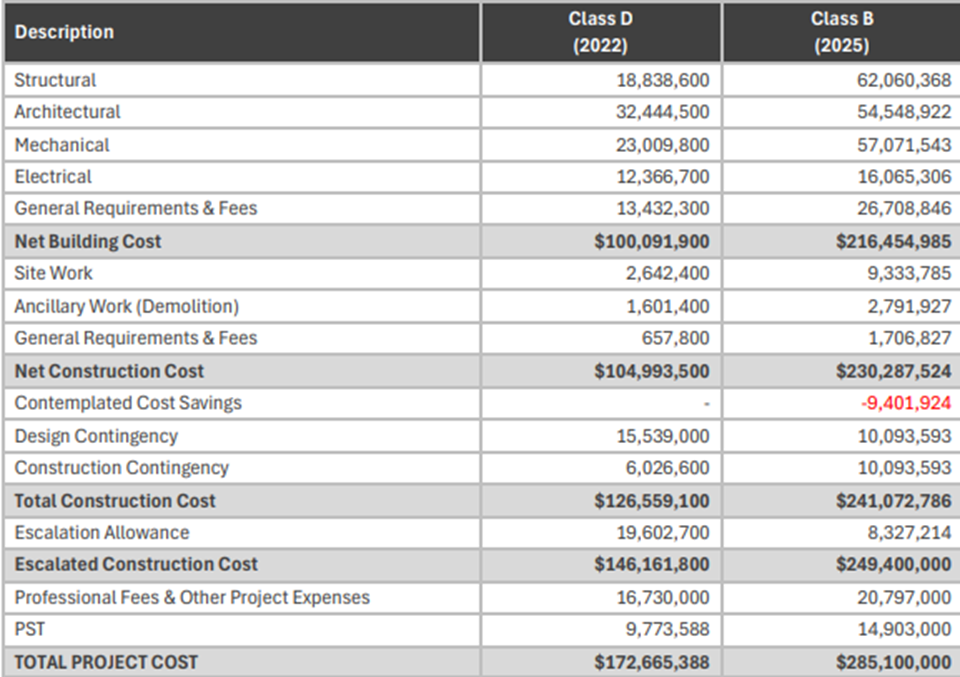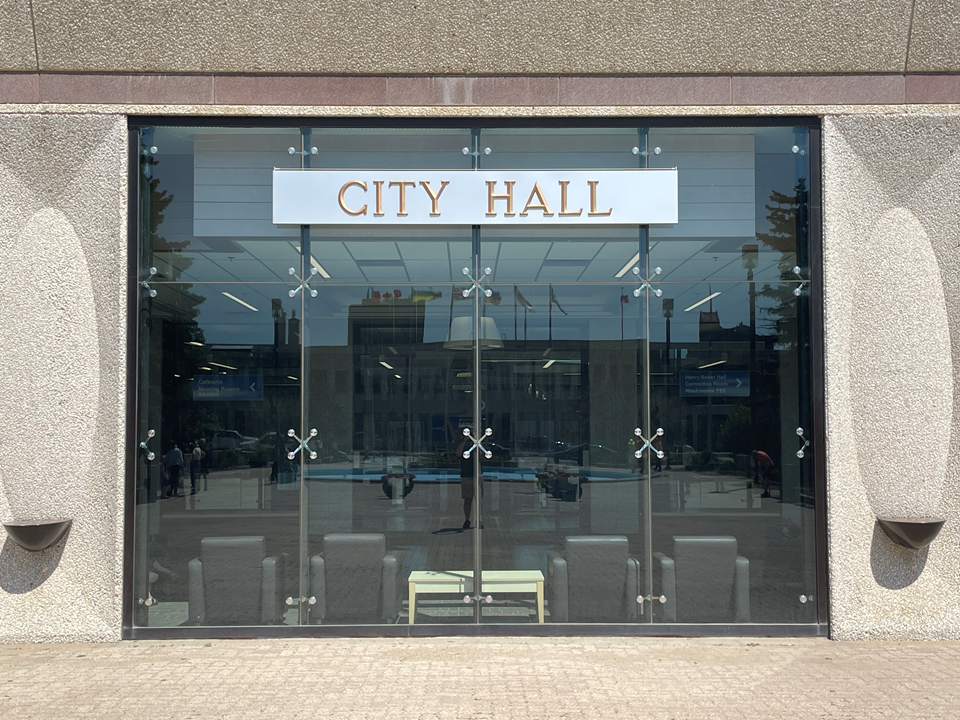REGINA — The new $285.1 million costs for the Indoor Aquatics Facility (IAF) was approved this week in a 9-2 vote during Wednesday's city council meeting.
The cost of the IAF had been pegged at $245.1 million last fall. However, due to labour market constraints, capital investment and demand, scouting construction costs, transportation and fuel cost increases, and global supply chain disruption, the amount to build the IAF soared by $40 million.
A report from administration also detailed the difference in cost from when the IAF was labelled as Class D to Class B.

Notable differences in cost include a roughly 229 per cent increase for structural, an approximate 68 per cent increase for architectural and a roughly 148 per cent increase for mechanical.
These numbers had Coun. Sarah Turnbull (Ward 5) questioning the costs since Class D projects are typically within a 25 to 50 per cent accuracy range for the total project cost.
This is because Class D designs are for the beginning of the project, which includes physical layouts and elevations.
However, the IAF in its Class B phase increased by roughly 65 per cent.
“When there is a [roughly] 230 per cent [increase], I think there needs to be more explanation,” said Turnbull while speaking to administration.
While Turnbull said “no one feels good about rising cost,” she also recognized the need for a long-term community space.
“The Lawson life span is nearly over, and it can’t meet the current demand. Families can’t register for swim lessons, events and lessons are being cancelled and reallocated.”
Without a large pool facility, Turnbull said the city would lose competitive swimming, water polo, and more.
Paying the additional cost
Of the $40 million new costs for the IAF, $30 million will come from funding that was directed at other recreational capital projects.
A majority of that comes from directing $21.704 million away from outdoor pools.
The money had been planned to reconstruct pools like Massey, Buffalo Meadows, and Regent Pool.
While these pools are still planned for reconstruction, this won't occur until 2031.
In the event one of these pools faces a major infrastructure failure, the pool would remain closed until funds are made available to fix the infrastructure.
Other capital projects getting their funds directed include:
- Artificial turf field: $5.610 million
- Pickleball spaces: $1.4 million
- Dog Park $1.286 million
The other $10 million comes from the city taking on additional debt.
Daren Anderson, City of Regina chief financial officer, said this will cost the medium household an additional 42 cents per month in taxes.
Anderson had pegged that amount at roughly 57 cents last week, but said 2025 tax adjustments caused this change.
The total costs of the pool will be covered from $156 million in debt, $49.9 million paid via annual capital funding, $43.2 million from federal funding, and $36 million in provincial funding.
What will heat the pool?
The new IAF will be heated by geothermal heating.
Per a report, geothermal heating is seen as more environmentally friendly, producing an estimated 15,592 tonnes of carbon dioxide equivalent (tCO2e) over 50 years, compared to natural gas, which would produce 457,080 tCO2e.
The report also notes geothermal heating would cost the city roughly $4.6 million less over 50 years if you remove the carbon tax and factor in the $14.7 million in funding received from the province and federal government.
Despite these numbers, Coun. Dan Rashovich (Ward 1) saw using geothermal as a risk.
He mentioned no major geothermal heating project has ever been done over a deadwood formation.
“There’s a lot of risk involved with this.”
Coun. Clark Bezo (Ward 10) agreed with Rashovich, questioning what the city would do in case geothermal heating doesn’t work.
The city plans to implement a natural gas backup boiler, which could be used to power the IAF with enhancements. Those enhancement costs haven’t been outlined.
“The risk is on the taxpayer, the burden is on the taxpayer if this doesn’t work," said Bezo.
Other councillors didn’t understand the point of questioning the research of experts.
“Why do we invest in all the expertise that we have just to ignore it?” said Coun. Victoria Flores (Ward 6).
“We’ve received a really great report with options and recommendations that had a lot of information that, if we read the report, it answers a lot of the questions that were asked today, and I think it’s important to recognize that,” she added.
Flores also noted that changing the heating method for the IAF would further delay its construction and continue to raise its cost.
Coun. Shobna Radons (Ward 7) said the pool and its design have already been passed by the previous city council.
“Let’s move on, let’s move forward to pave something new that this council wants to do for our community, please.”
Construction on the IAF will begin in early fall. The plan is for the facility to open in 2029.



.png;w=120;h=80;mode=crop)
